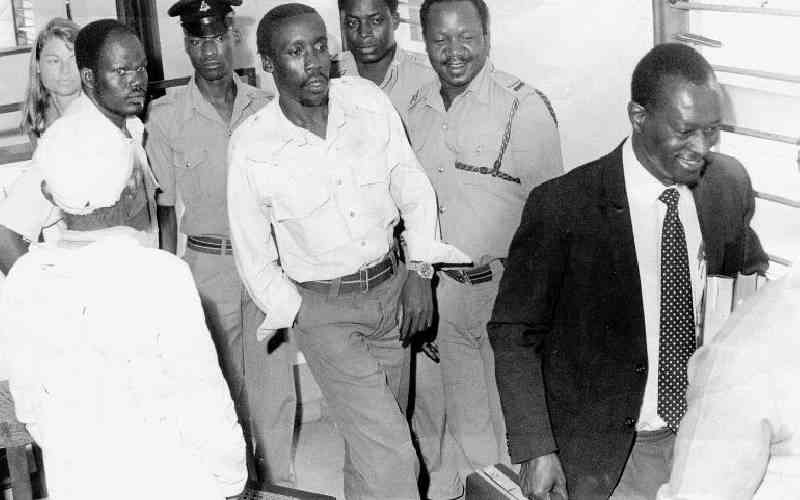×
The Standard e-Paper
Home To Bold Columnists

Bob Marley's songs gave away the game. Chants of power...power and a staccato of gunfire around the city confirmed Kenya's worst nightmare.
A group of junior airforce soldiers had taken over the government. And one of the most recognisable voices of Leonard Mambo Mbotela confirmed this. August 1, 1982, was real and a coup was underway.